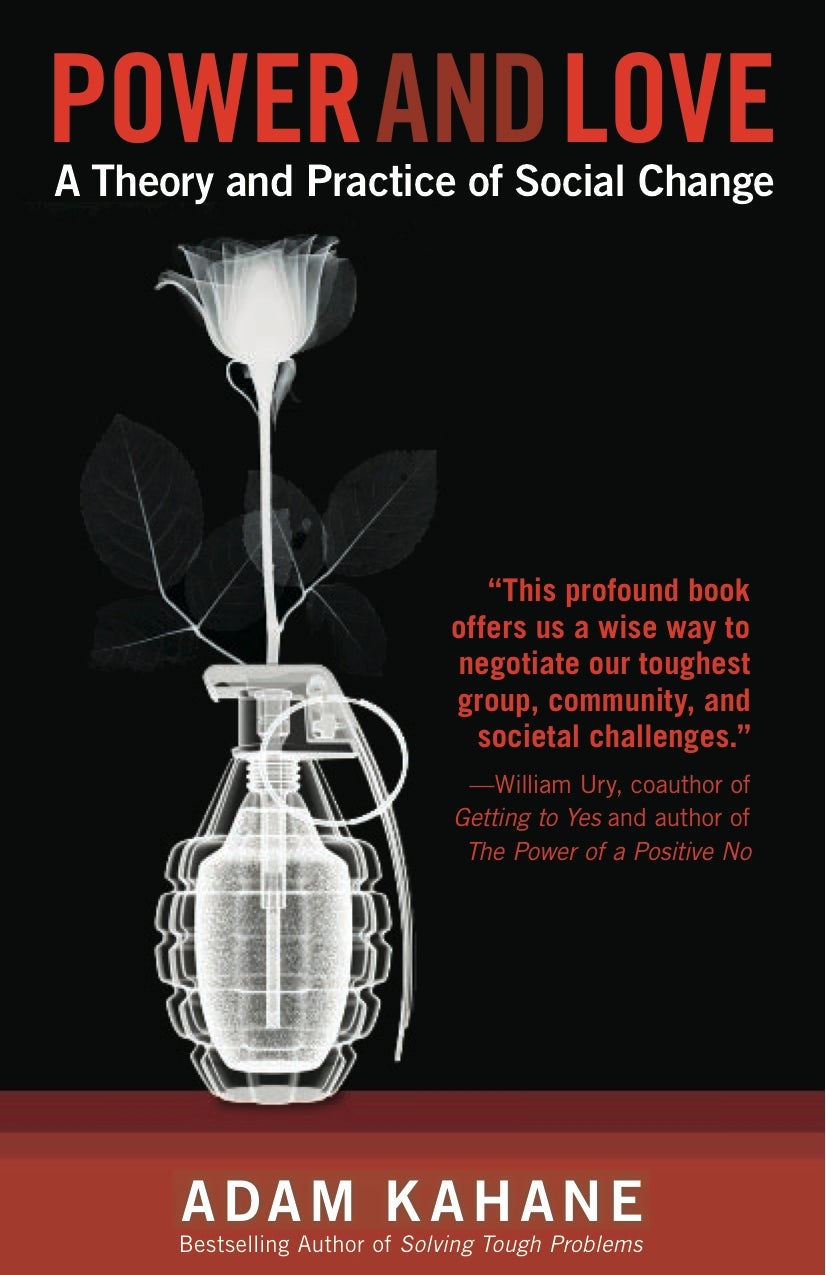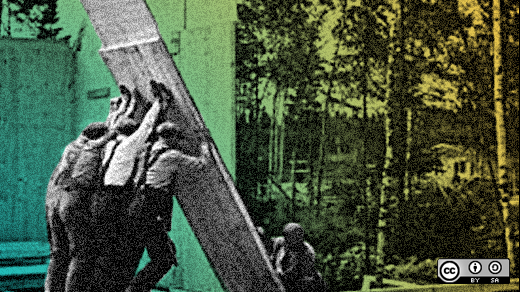Over the past two weeks, I've been reading the book Power and Love by Adam Kahane (thanks to Eugene Eric Kim for the recommendation).
After working with Eugene on the story of Wikimedia's open strategic planning process, I'd remarked to him that the Wikimedia effort was one of the most successful, large-scale collaborative exercises I'd ever seen. Eugene replied that if I thought their project was big, I should read Power and Love to get a sense for the types of large-scale collaborative projects Adam tackles, often on the scale of nations.
 It's really a wonderful, introspective book, filled not just with successes but failures as well, and is probably one of the better-reviewed books I've seen on Amazon.
It's really a wonderful, introspective book, filled not just with successes but failures as well, and is probably one of the better-reviewed books I've seen on Amazon.
Adam is perhaps best known for his work facilitating the Mont Fleur Scenario Project in South Africa in the early 1990s. In an incredibly difficult, post-apartheid environment, Adam brought a diverse group of people together to collaborate on ways to smooth the country's transition to democracy. He has since led collaborative projects in India, Guatemala, and Israel, among other places around the world, and describes many of these projects in the book.
As I read, I couldn't help but notice one thematic appearing over and over. In many of Adam's projects, there was little hope of getting everyone involved to rally around a shared purpose, something I view as a pre-requisite for building a successful community of passion. In fact, even when a fragile collaboration was pieced together in a workshop, it often would fall apart again quickly once the session was over.
In the open source world, we are usually lucky enough to be working with opt-in communities. Meaning, people are participating of their own free will, and have almost always joined the project because they share a common belief about what it might accomplish.
But reading Adam's book has made me wonder, do the principles we regularly discuss here on opensource.com apply in communities where passion is strong, but not everyone shares a common purpose? Can open collaboration be successful in places where competing agendas are flourishing and not everyone has opted-in to the same project?
My experiences tell me that in communities without a shared purpose, productive open collaboration is usually incredibly difficult. Our current political environment here in the United States is certainly case study #1.
In the open source world, we don't know how lucky we have it.
Do you think an open, collaborative approach can really succeed in environments where not everyone shares a common purpose and has joined of their own free will?
I'd love to hear what you think.






3 Comments